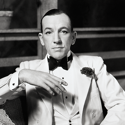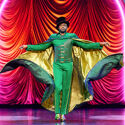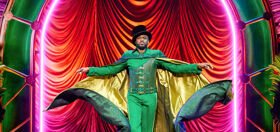
This Sunday, the beloved Annette Bening is among the nominees for Best Actress in a Leading Role at the 83rd Academy Awards. She will be recognized for her role in The Kids Are All Right as Nic, the lush, lesbian matriarch of a family in crisis, dealing with infidelity incited by an interloper threatening the stability and well being for a unit already existing in quiet peril. Her performance in this movie, widely regarded as a milestone in progressive representations – though not necessarily by all, is similar to her role in her also Oscar-nominated turn as Carolyn Burnham in 1999?s American Beauty: charming, saddening and disgusting us all with a marvelous subtlety and memorable harmony. Though she is expected to, again, lose, to Natalie Portman in Black Swan, Bening’s Nic joins the bevy of lesbian characters honored by the Academy with nominations and defies the derogatory tendencies tied into those characters’ psyches by their sexuality.
Through the Academy’s history, there have been six actresses nominated for playing lesbian characters, three in the leading category and three in the supporting. This is not including Bening’s most recent nomination which would make it seven:
Leading Actress:
Judi Dench as Barbara Covett in Notes on a Scandal (2006)
Charlize Theron as Aileen in Monster (2003)
Nicole Kidman as Virginia Woolf in The Hours (2002)
How about we take this to the next level?
Our newsletter is like a refreshing cocktail (or mocktail) of LGBTQ+ entertainment and pop culture, served up with a side of eye-candy.
Supporting Actress:
Julianne Moore as Laura Brown in The Hours (2002)
Jessica Tandy as Ninny Threadgoode in Fried Green Tomatoes (1991)*
Cher as Dolly Pelliker in Silkwood (1983)
(*Although in the case of this example, the characters’ sexualities are so coded that acknowledgment of the lesbian undertones in the film could be remiss to many.)
Four of the six aforementioned characters (played by Dench, Theron, Kidman and Moore) fit the lesbian archetype of the woman woebegone and warped, turned wicked by her desire and her, presumably conditioned, reaction to it and its implication. Dench’s Barbara Covett perhaps most aptly embodies this offensive stereotype, sinisterly plotting to usurp her coworker Sheba Hart (Cate Blanchett…that Dench, what a cradle robber) from her marriage by manipulating information she has concerning an affair Sheba took part in with a student. Driven through this nefarious plot by her loneliness and denial, Barbara is a pitiful character who at the film’s end is implied to be rekindling this cycle of abuse. It was played wonderfully by Dame Judi Dench and, if you’re able to remove the political implications of the character itself, her performance deserved lauding and attention, but it is, at the very least, frustrating that lesbian characters honored by the Oscars are almost always negative and homophobic representations.
As a relevant side note, it is also important to acknowledge that all of these characters are white women, a bias probably more attributable to white privilege’s deeply embedded presence in the Hollywood infrastructure than to homophobia in the black community and black cinema. As Vito Russo says in his cinematic queer manifesto originally from 1981, The Celluloid Closet:
Homosexuals are convenient scapegoats but their shabby treatment is only the most ostentatious part of a wider problem – that the diversity of American life has never been reflected in popular films. There are virtually no black faces on the American screen, and those we see are the faces of clowns.
Paula Patton’s role in 2009?s Precious as Blu Rain, the lesbian alternative schoolteacher who knows her way around the welfare system and how to work around its shortcomings, is the only recent black lesbian representation I can think of in a majorly released film that gained Oscar attention. Hopefully good things will come from Dee Rees’s Pariah, recently premiered at Sundance and earning accolades and attention and a distribution deal from Focus Features, centered around a black lesbian girl from Brooklyn coming of age and coming out. A new story told with sensitivity and nuance, something to look forward to.
Before Bening, the exception to this trend was in Cher’s (SWOON!) portrayal of Dolly Pelliker in Silkwood. Russo writes of Dolly:
The only major character in a mainstream film to achieve this level of casual realism in recent years was Cher’s Dolly Pelliker in Mike Nichols’ Silkwood…With its portrayal of Dolly Pelliker and her girlfriend Angela, Silkwood is the best example we have of a film that is not about lesbianism yet presents lesbian characters who are perfectly integrated into a story without condescension, explanation or self consciousness of any kind…Dolly is different but conceived as a family member, in direct contrast to the portrayal of most gays as alien to society and to the individuals around them.
It would be interesting to know how Russo would feel about Annette Bening’s Nic, a good 26 years after the book originally came out. And even if Nic is a metric of queer progressivism’s success, if her existence as a mother is necessary to the cultural acceptance of her character and is indicative of a new trend furthering the conflation of womanhood and motherhood… but I digress.
When compiling research for this post, there was an abundance of information and analysis chronicled about gay male characters who had been honored by the Oscars but less so about lesbians. This discrepancy is probably due to more gay male characters having been written and, more paramount, having been featured in films that garnered distribution and viewership. Hollywood’s sexism is no secret and that bias infiltrates queer representations as well. This is not to say that gay male characters have fared much better fates than their lesbian counterparts. Most if not all of those representations have also been largely troubled as well. But here I’d like to focus more specifically on the issue of lesbian representations at the Oscars as to avoid losing my point by ignoring issues of intersectionality.
Why does this even matter? Aren’t the Oscars just, to quote Lindsay, “the ultimate pageant of Hollywood hegemony?” Aren’t homo award show enthusiasts generally relegated to the ranks of fashion correspondence and even then that’s only gay-male-inclusive? In many ways, yes, that is true. The Oscars are driven by capital and the problems that accompany forces capitalistically driven. But the Academy Awards do matter in their potential to serve as a vehicle for visibility, empathy, and insurance towards cultural relevance. If more lesbians’ and other queer folks’ stories are told, respected and honored, it will be easier to combat attitudes that drive institutionalized bigotry and ignorance. People make sense of their lives and the lives of others through art, including and especially movies and media. If stories aren’t told with sensitivity and accuracy then prejudiced representations of them will prevail.
This post originally appeared on The Canon Ball and is republished here with permission.




















Devon
White privilege (X)
Hollywood is sexist (X)
Using the word queer (X)
Complaining about something being “only gay-male-inclusive” (X)
“The conflation of womanhood and motherhood” (X)
Hey check it out, I got leftist armchair activist bingo!
TimeToLook
LOL, Devon. You got it.
jason
Hollywood is extremely homophobic towards male-male sexuality. Any movies that contain male-male sexuality are usually comedies where the male-male interaction is used as a punch-line. We gay and bi men are literally Hollywood’s punching bags.
The small number of movies that include us gay and bi men in a mature and realistic way are usually very small movies that were funded on a shoe-string or because some benevolent financier decided to put his cash in the project.
Sony, Universal, Buena Vista….they are, in my opinion, extremely homophobic towards male-male sexuality.
As for female homosexuality, I think what’s interesting is that it is portrayed in terms of the sleazy straight guy fantasy. The lesbians must have long, flowing hair and look as if they’ve just stepped out of the pages of the straight men’s magazines. You rarely see a genuine diesel dyke on American TV or in American movies.
Red Meat
Oh don’t mention how Portman was robbed back in 05 or even nominated in 07 for Evey
Jeffree
@Devon: Two can play that game! You still get an A on your post, but you failed to congratulate the author on the use of the words “capital” and “capitalism”, “coding” and “womanhood.” Points off for the author, who relied on the ca. 1950s term “actresses” even when not referring to award titles. To “SWOON” over Cher is also very unPC.
(I bet you & I had the same Queer Studies professor!)
Let’s rate Jason’s inevitable rant by his own similar standard:
–Use of word “sleazy” (X)
–Deployment of “sleazy” referring to men but not women (X)
–Mention of “long, flowing hair” (X)
–“Double standards” (X)
–Reference to”male-male sexuality” (X)
–Avoidance of word “sex” (X)
–Misuse of the word “literally” (X)
–Omnicient viewpoint: acts as if all movies have been viewed by him (X).
Fun stuff. We’ll have to do this again soon!
alan brickman
Yes they are…nuf said..
alan brickman
male gays really do get the fuzzy part of the lollipop in hollywood…
Jeffree
Previous snark aside, I wish we’d see more gay/bi male characters on the big screen — guys who aren’t just sassy sidekicks or doomed to a life of frozen dinners, anonymous sex, late-stage HIV, côcktáil bìnges, bitter exes & mid-town cabaret.